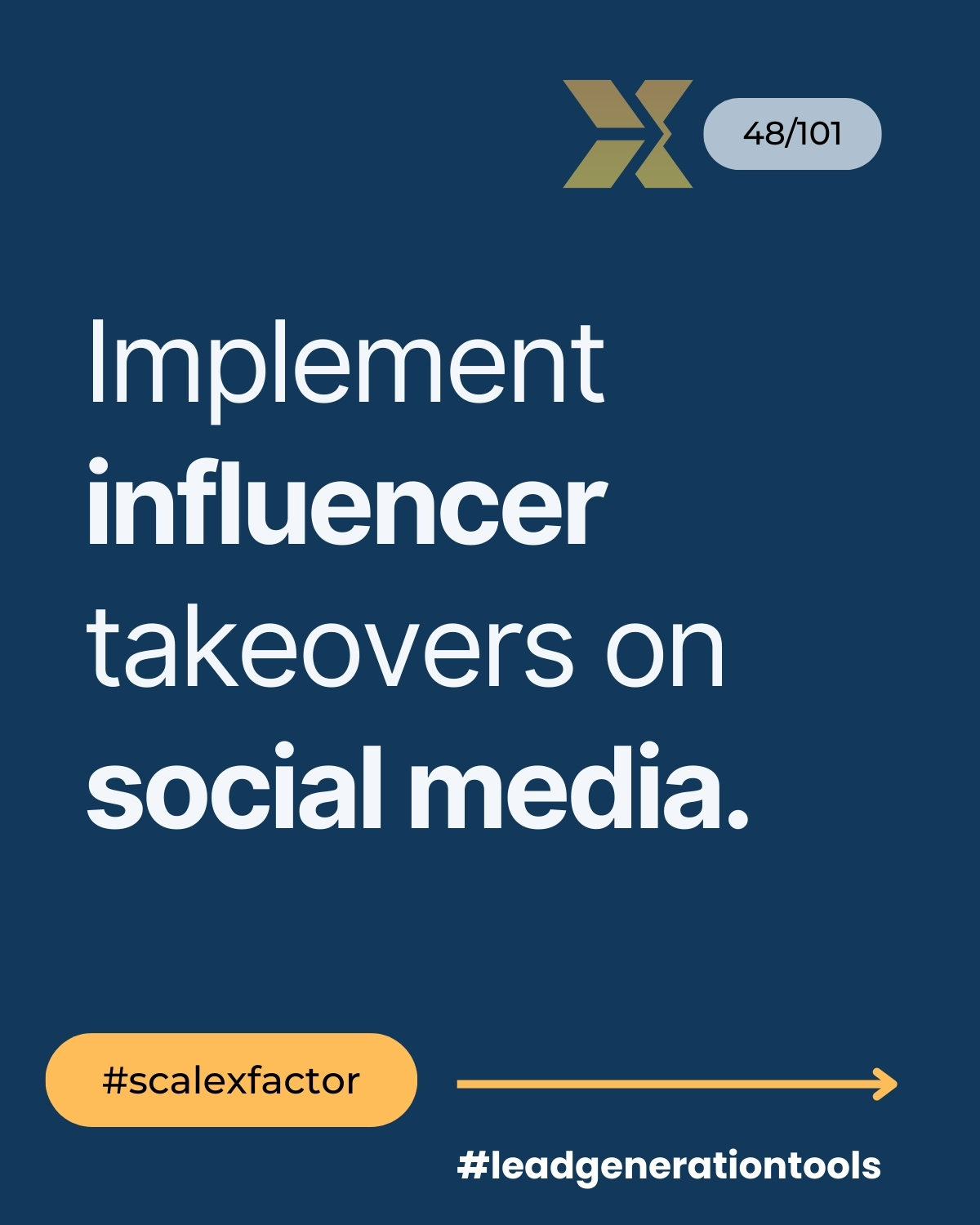Welcome to the sixteenth installment of our thrilling Lead Generation Tools Series, “101 Ways of Lead Generation – Tools in Modern Marketing.” As you know Lead generation is the lifeblood of businesses, driving growth and revenue. So, Get ready to embark on a captivating journey where we explore powerful tools and techniques to revolutionize your business’s growth.

In this chapter, we’ll uncover three remarkable strategies that will leave a profound impact on your lead generation efforts. We delve into the fascinating world of Lead Generation Tools, providing you with valuable knowledge and insights.
Whether you’re an aspiring marketer, a business owner, or simply curious about the strategies behind successful lead generation, this series is designed to equip you with the essential tools and techniques to thrive in today’s digital landscape.

In this segment, we explore three powerful methods to boost your lead generation efforts.
Discover the power of thought leadership as we guide you through the process of creating and distributing compelling content that positions you as an expert in your industry (tip #46).
Uncover the potential of sponsoring industry events or conferences to expand your reach and establish valuable connections (tip #47).
Lastly, learn how influencer takeovers on social media can amplify your brand’s visibility and engagement (tip #48).
Prepare to unlock the secrets of lead generation tools and revolutionize your marketing strategies. Join us on this transformative journey as we equip you with the knowledge you need to thrive in the modern marketing landscape.
| Tool No | Lead Generation with Lead Generation Tools |
|---|---|
| 46th Lead Generation Tools | Develop and distribute thought leadership content. |
| 47th Lead Generation Tools | Sponsor relevant industry events or conferences. |
| 48th Lead Generation Tools | Implement influencer takeovers on social media. |
Develop and distribute thought leadership content:
Developing and distributing thought leadership content is a highly effective lead generation tool. By positioning yourself as an industry expert, you can attract and engage a targeted audience of potential leads.
Thought leadership content involves creating high-quality, insightful material that offers unique perspectives, industry trends, and valuable advice. This content can take various forms, such as blog posts, articles, white papers, or videos.
By consistently delivering thought-provoking and informative content, you establish credibility, build trust, and differentiate yourself from competitors. Share your expertise on relevant platforms, including your website, social media, industry publications, and online communities.
To optimize this lead generation tool, identify topics that resonate with your target audience and align with your brand’s expertise. Conduct thorough research, showcase your knowledge, and provide actionable insights that readers can apply to their own challenges.
Engage with your audience by encouraging comments, questions, and discussions around your thought leadership content. This interaction not only fosters relationships but also helps you identify potential leads and understand their pain points.
By developing and distributing thought leadership content, you can position yourself as a trusted authority, attract qualified leads, and nurture relationships that lead to business opportunities. Invest in creating valuable content that showcases your expertise and sets you apart in your industry.

Pros:
- Establishes credibility: Thought leadership content showcases expertise, building trust with potential leads.
- Drives organic traffic: High-quality content attracts relevant organic traffic to websites, increasing the chances of lead generation.
- Nurtures leads: Insightful content guides prospects through the buyer’s journey, turning them into qualified leads.
- Enhances brand reputation: By providing valuable information, thought leadership content bolsters the brand’s reputation.
- Competitive advantage: Establishing thought leadership sets businesses apart from competitors, attracting leads seeking authoritative resources.
Cons:
- Time commitment: Creating thought leadership content demands time and effort to research, develop, and distribute.
- Requires expertise: To be effective, thought leadership content must be well-researched and demonstrate a deep understanding of the industry.
- Potential saturation: In crowded markets, it can be challenging to stand out among numerous thought leaders.
- Long-term commitment: Consistently producing valuable content is necessary to maintain thought leadership status.
- Limited reach: Depending solely on thought leadership content may not effectively target a broader audience.
FAQs:
Q1: How frequently should thought leadership content be published?
A1: Consistency is key. Aim for regular publication, such as weekly or monthly, prioritizing quality over quantity.
Q2: Can thought leadership content be repurposed across different platforms?
A2: Absolutely! Repurposing content for blogs, social media, webinars, or podcasts helps reach diverse audiences.
Q3: How can I identify relevant thought leadership topics?
A3: Conduct thorough market research, analyze industry trends, and listen to your audience’s pain points to determine relevant topics.
Sponsor relevant industry events or conferences
Sponsoring industry events or conferences is a powerful lead generation tool. By associating your brand with these gatherings, you gain exposure to a targeted audience of industry professionals. This strategy helps establish credibility and positions your brand as a thought leader.
Take advantage of speaking engagements or panel discussions to share insights and engage with potential leads. Networking at these events allows you to forge valuable connections with influencers, partners, and prospects. Choose events that align with your target audience and industry, and maximize your presence through strategic promotion. Sponsorship of relevant industry events or conferences opens doors to generate quality leads and expand your brand’s reach.
Sponsoring industry events or conferences offers a unique opportunity to connect with a captive audience, strengthen brand visibility, and generate leads within a targeted market.

Pros:
- Increased brand exposure: Sponsorship places your brand in front of a captive audience, boosting visibility and lead generation.
- Networking opportunities: Events facilitate direct interaction with industry professionals, potential clients, and partners.
- Enhanced brand reputation: Associating with reputable events enhances brand credibility and trust.
- Product or service showcasing: Sponsoring events provides a platform to demonstrate and promote offerings to a relevant audience.
- Lead generation potential: Events enable lead generation through networking, booth visits, and speaking engagements.
Cons:
- Cost considerations: Sponsoring events incurs expenses such as sponsorship fees, travel, and marketing collateral.
- Limited control: Event outcomes may be influenced by factors beyond the sponsor’s control, like attendance or competing sponsors.
- Competing sponsors: Other sponsors may dilute brand visibility and divert attention at the event.
- ROI measurement: Measuring the direct impact of event sponsorships on lead generation can be challenging.
- Mismatched target audience: Poorly chosen events may not align with the target audience, resulting in wasted resources.
FAQs:
Q1: How can I choose the right event for sponsorship?
A1: Research the event’s target audience, reputation, relevance to your industry, and expected attendee turnout.
Q2: Can smaller businesses benefit from event sponsorships?
A2: Yes! Smaller businesses can leverage sponsorships to gain exposure and forge valuable connections.
Q3: Apart from financial support, what other ways can sponsors contribute?
A3: Sponsors can offer industry expertise, speakers for sessions, or branded promotional materials to enhance their involvement.
Implement influencer takeovers on social media:
Looking to boost your lead generation efforts? Look no further than implementing influencer takeovers on social media. This powerful strategy can have a tremendous impact on your brand’s exposure and engagement levels.
By collaborating with influential personalities in your industry, you can tap into their existing audience and leverage their expertise to attract qualified leads. During the takeover, the influencer will share captivating content, insights, and experiences, resonating with your target audience and building trust in your brand.
To make the most of influencer takeovers, choose influencers whose values align with your brand and who have a strong following within your niche. Collaborate closely with them to develop a content strategy that aligns with your lead generation goals.
Influencer takeovers involve collaborating with social media influencers to manage a brand’s social accounts temporarily. This strategy taps into the influencer’s engaged audience, boosting brand awareness and driving lead generation.

Pros:
- Expanded reach: Influencers have dedicated followers, expanding brand visibility to their engaged audience.
- Authentic content creation: Influencers infuse their unique voice and style, creating relatable and genuine content.
- Trust-building: Partnering with influencers leverages their established credibility, fostering trust in the brand.
- Targeted audience: Influencers cater to specific niche markets, enabling brands to reach their desired customer base.
- Increased engagement: Influencers’ active and loyal fan base drives higher engagement rates on social media.
Cons:
- Finding the right match: Identifying influencers aligned with the brand’s values and target audience can be challenging.
- Trustworthiness concerns: It’s crucial to ensure the chosen influencer maintains a reputable online presence.
- Cost considerations: Collaborating with influencers may involve financial compensation or product exchanges.
- Short-term impact: Influencer takeovers may result in temporary spikes in engagement rather than sustained lead generation.
- Loss of control: Brands must trust the influencer’s content creation process, potentially relinquishing some control.
FAQs:
Q1: How can I find suitable influencers for a social media takeover?
A1: Research relevant influencers in your industry, reviewing their content, engagement rates, and audience demographics.
Q2: Should the influencer completely manage the brand’s social media during the takeover?
A2: It depends on the agreed arrangement. Some brands allow complete control, while others prefer collaboration or oversight.
Q3: Can influencer takeovers be utilized across multiple social media platforms?
A3: Yes, influencer takeovers can be implemented on platforms where the influencer has a strong presence, such as Instagram, YouTube, or TikTok.
Conclusion: Implementing thought leadership content, event sponsorships, and influencer takeovers can significantly impact lead generation efforts. These strategies establish credibility, enhance brand visibility, and foster genuine connections with potential customers. While each approach has its pros and cons, understanding and leveraging them effectively can propel your business towards success in generating quality leads. Stay innovative, remain customer-centric, and adapt these strategies to suit your unique business needs for maximum impact.




